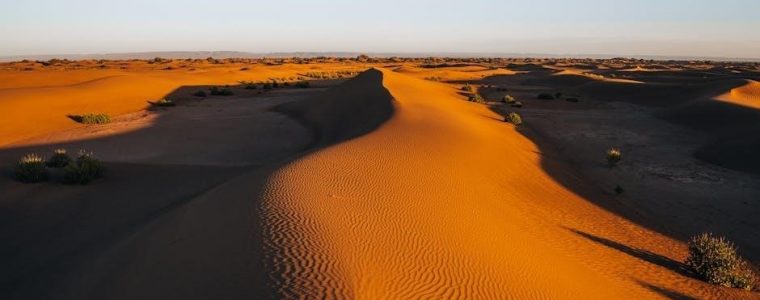
dune filetype:pdf
Frank Herbert’s Dune, published in 1965, is a seminal work in science fiction, blending political intrigue, ecological themes, and philosophical depth. Initially rejected by publishers, it gained acclaim for its complex world-building and unique vision of a desert planet central to the universe’s power dynamics. The novel has since become a cultural touchstone, inspiring adaptations and sparking debates on humanity’s relationship with nature and technology.

Overview of the Novel
Frank Herbert’s Dune, published in 1965, is a groundbreaking science fiction novel set in a distant future where noble houses vie for control of the desert planet Arrakis, the sole source of the highly valuable spice melange; This substance, essential for interstellar travel and psychic abilities, becomes the focal point of intense political maneuvering. The story follows Paul Atreides, a young noble who becomes the leader of a rebellion after his family is betrayed. The novel explores intricate political dynamics, ecological themes, and religious influences, offering a rich and layered narrative. Its complex characters and detailed world-building earned critical acclaim, establishing Dune as a cult classic and a foundational work in the science fiction genre, influencing countless adaptations and works of fiction.

Historical Context
Frank Herbert’s Dune was written during the 1960s, a period marked by Cold War tensions, environmental concerns, and growing awareness of ecological issues. Herbert drew inspiration from real-world conflicts over resources, such as the Middle Eastern oil crises, and the rise of environmentalism. The novel reflects the era’s political instability and the struggle for power, mirroring the complexities of global geopolitics. Additionally, Herbert’s interest in ecology and his coverage of the 1969 Santa Barbara oil spill influenced his depiction of Arrakis, a desert planet where resource exploitation and environmental degradation are central themes. The historical context of the 1960s also shaped the novel’s exploration of colonialism, religious movements, and the clash between tradition and modernity, making Dune a timeless commentary on human society and its relationship with nature. This historical backdrop underscores the novel’s enduring relevance.
Thematic Significance
Frank Herbert’s Dune explores profound themes that resonate deeply with readers. The struggle for power and control, particularly through resources like the rare spice melange, highlights the dangers of exploitation and the corrupting influence of authority. Environmental stewardship is another central theme, as the native Fremen work to restore their desert planet’s ecosystem, emphasizing the importance of ecological balance. The novel also delves into identity, religion, and prophecy, as Paul Atreides’ journey from exile to messiah challenges traditional notions of leadership and destiny. Themes of colonialism and cultural imperialism are woven throughout the narrative, critiquing the exploitation of indigenous peoples and their resources. These interconnected themes not only enrich the story but also provide a reflective lens for understanding human nature and society. The novel’s depth ensures its relevance across generations.

Main Plot Summary
Dune follows Paul Atreides as his family, House Atreides, takes control of Arrakis, the only source of the spice melange, a substance crucial for interstellar travel and prescience. Betrayal by their rivals, House Harkonnen, forces Paul and his mother, Lady Jessica, into the desert wilderness. There, they join the native Fremen, who prophesize Paul as their messiah. Paul leads a rebellion, leveraging his prescient abilities and the Fremen’s knowledge to reclaim power and control the spice, reshaping the political and ecological future of Arrakis and the galaxy.

Setting

The story of Dune unfolds in a distant future where noble houses govern planets under the rule of the Padishah Emperor. The central setting is Arrakis, a harsh desert planet known as Dune, where the rare and highly valuable spice melange is found. The spice, essential for interstellar travel and prescience, makes Arrakis the most contested location in the galaxy. The planet’s extreme environment, with its giant sandworms and limited water resources, shapes the native Fremen culture, who have adapted to survive in this unforgiving world. Beyond Arrakis, the narrative spans other planets, including the imperial capital Kaitain and the Harkonnens’ fortress world Giedi Prime, highlighting the political and ecological interconnectedness of the universe.
Main Plot
The story begins with House Atreides, rulers of the ocean planet Caladan, being entrusted with the governance of Arrakis, the sole source of the rare and valuable spice melange. However, this appointment is a trap orchestrated by their rivals, House Harkonnen, and the Emperor. Upon arrival, House Atreides is betrayed, and Duke Leto Atreides is killed. His son, Paul, and concubine, Lady Jessica, escape into the desert, where they are taken in by the native Fremen. Paul discovers his latent prescient abilities and learns to survive the harsh environment. He becomes the leader of the Fremen, embracing their prophecy of a messiah who will bring balance to the universe. The plot culminates in Paul’s rebellion against the Emperor and the Harkonnens, leading to a climactic battle for control of Arrakis and the spice.
Subplots
The betrayal of House Atreides by the Harkonnens and the Emperor drives the central conflict, but several subplots enrich the narrative. Paul’s prescient visions and his transformation into the Fremen messiah are pivotal, while Lady Jessica’s internal struggle with her Bene Gesserit duties adds emotional depth. The ecological subplot highlights the Fremen’s efforts to terraform Arrakis, emphasizing their deep connection to the environment. Additionally, the complex relationships between the noble houses, the Spacing Guild, and the Emperor illustrate the intricate political landscape. Dr. Liet Kynes’s dual role as a scientist and Fremen leader further explores themes of identity and loyalty. These subplots intertwine seamlessly, enhancing the novel’s layered storytelling and thematic complexity.
Key Characters
Paul Atreides, the protagonist, is a young noble with prescient abilities. Lady Jessica, his mother, balances Bene Gesserit duties and maternal instincts. Baron Vladimir Harkonnen, the ruthless antagonist, seeks power and revenge. Other key figures include Gurney Halleck, Duncan Idaho, and Dr. Wellington Yueh, each playing pivotal roles in the intricate political and personal conflicts of Arrakis.
Paul Atreides
Paul Atreides is the protagonist of Dune, a young noble born into a powerful family. He possesses extraordinary abilities due to his mother’s Bene Gesserit training and his exposure to the spice, granting him prescience and heightened awareness. Paul’s journey transforms him from a naive prince to a messianic leader, guiding a rebellion on Arrakis. His visions of the future shape his actions, but also burden him with the weight of destiny. Paul’s internal struggle between his humanity and his prophetic role is central to the novel, exploring themes of leadership, sacrifice, and the ethical dilemmas of power. His transformation into “Muad’Dib” symbolizes his embrace of his fate and his role as a unifying force in a fractured universe.
Lady Jessica

Lady Jessica, a member of the Bene Gesserit sisterhood, is a central character in Dune, serving as the mother of Paul Atreides and the concubine of Leto Atreides. Her Bene Gesserit training grants her immense emotional and physical control, as well as the ability to manipulate others through subtle psychological tactics. Jessica’s decision to bear a son, despite the sisterhood’s orders to produce a daughter, underscores her complex loyalties and internal conflicts. Her relationship with Paul is deeply influential, as she trains him in Bene Gesserit ways, preparing him for his destiny. Throughout the novel, Jessica’s actions are driven by a mix of maternal love, political necessity, and her own ambition, making her a multifaceted and pivotal figure in the story.
Baron Vladimir Harkonnen
Baron Vladimir Harkonnen is the ruthless ruler of House Harkonnen and the primary antagonist in Dune. His grotesque obesity and reliance on a suspensor underscore his decadent lifestyle and corruption. Driven by a deep-seated hatred for House Atreides, the Baron orchestrates their downfall, betraying them on Arrakis. His motivations stem from a desire for power and control over the spice trade, which he believes the Atreides threaten. Despite his cruelty, the Baron is cunning and strategically brilliant, using manipulation and terror to achieve his goals. His sadistic nature is evident in his treatment of others, including his own family, such as his nephew Glossu Rabban. The Baron’s actions propel the plot and serve as a counterpoint to the noble ideals of House Atreides, making him one of literature’s most memorable villains.

Themes and Symbolism
Dune explores themes of power, religion, and ecology, blending political intrigue with philosophical questions. The desert planet Arrakis symbolizes human survival and environmental stewardship, while the spice represents addiction, power, and transcendence. Sandworms embody nature’s dominance, and the native Fremen reflect indigenous resistance. These elements weave a complex narrative about humanity’s relationship with nature, technology, and authority, making Dune a rich tapestry of symbolism and thought-provoking ideas.
Political and Social Themes
Dune delves into complex political and social structures, critiquing power dynamics and imperialism. The novel portrays a feudal interstellar society ruled by noble houses, highlighting struggles for dominance and resource control. The native Fremen’s resistance against colonial exploitation underscores themes of oppression and indigenous rights. Herbert explores the dangers of autocracy and the manipulation of religion for political gain, as seen in the ruling class’s use of mythology to maintain control. The spice trade serves as a metaphor for economic dependency and the exploitation of resources. These themes are intertwined with ecological consciousness, emphasizing the interconnectedness of human and environmental systems. Through its intricate political landscape, Dune offers a cautionary tale about the consequences of unchecked power and the importance of social and environmental balance.
Ecological Themes
Dune is renowned for its profound exploration of ecological themes, particularly the interconnectedness of life and the environment. The novel centers on Arrakis, a desert planet where water scarcity and the native ecosystem dictate survival. Herbert emphasizes the importance of ecological balance through the Fremen’s deep understanding of the land and their efforts to terraform it. The sandworms, as keystone species, illustrate the intricate relationships within Arrakis’s ecosystem, while the spice, a byproduct of their life cycle, underscores the planet’s ecological and economic significance. The novel critiques human exploitation of natural resources and highlights the consequences of disrupting delicate environmental systems. By portraying a world where ecology is paramount, Dune advocates for environmental stewardship and long-term sustainability over short-term gains.
Religious and Philosophical Themes
Dune delves deeply into religious and philosophical themes, exploring the intersection of faith, prophecy, and human destiny. The novel portrays Paul Atreides as a messianic figure, fulfilling ancient prophecies and leading a religious movement among the Fremen. The Fremen’s indigenous beliefs, centered on the deity Shai-Hulud and the messiah figure known as the Lisan al-Gaib, are central to the story. Herbert examines the power of religion to shape culture and drive societal change, while also questioning the nature of prophecy and free will. The spice, with its ability to expand consciousness, raises philosophical questions about perception, reality, and the ethics of altering human awareness. These themes invite readers to reflect on the interplay between spirituality, power, and the human condition.
Cultural and Historical Impact
Dune has profoundly influenced science fiction, inspiring countless adaptations, including films, TV series, and games. Its exploration of ecology, politics, and religion resonates globally, shaping cultural and philosophical discourse while becoming a landmark in both literature and popular culture.
Influence on Science Fiction
Dune revolutionized science fiction by introducing complex political and ecological themes, setting a new standard for depth in the genre. Its intricate world-building, particularly the concept of a desert planet reliant on a rare resource, has inspired countless authors and creators. The novel’s exploration of power struggles, environmentalism, and the intersection of religion and politics has made it a benchmark for thought-provoking sci-fi. Herbert’s innovative approach to storytelling, blending philosophy with adventure, has influenced works like Star Wars and Foundation. The novel’s emphasis on ecological balance and the consequences of human exploitation of resources remains a powerful message in contemporary science fiction, ensuring its enduring relevance and influence.

Adaptations and Popularity
Dune has experienced a surge in popularity through various adaptations, cementing its place in popular culture. The 1984 film by David Lynch, though divisive, introduced the story to a broader audience. The 2000 miniseries and its sequel, Children of Dune, were well-received by fans and critics. Denis Villeneuve’s 2021 film adaptation became a critical and commercial success, grossing over $400 million worldwide. This has reignited interest in the novel, leading to increased book sales and new fan engagement. The upcoming sequel and planned TV series, Dune: The Sisterhood, further highlight the franchise’s enduring appeal. These adaptations have not only expanded Herbert’s universe but also introduced his visionary ideas to new generations, solidifying Dune as a cultural phenomenon.
Frank Herbert’s Dune remains a landmark in science fiction, offering a rich tapestry of political intrigue, ecological wisdom, and philosophical introspection. Its exploration of power, religion, and humanity’s relationship with nature continues to resonate, making it a timeless classic. The novel’s influence extends beyond literature, shaping film, television, and even environmental thought. Recent adaptations, such as Denis Villeneuve’s 2021 film, have introduced Dune to new audiences, ensuring its relevance in contemporary culture. As a work of profound depth and vision, Dune challenges readers to reflect on their place within the universe, solidifying its legacy as a cornerstone of speculative fiction.